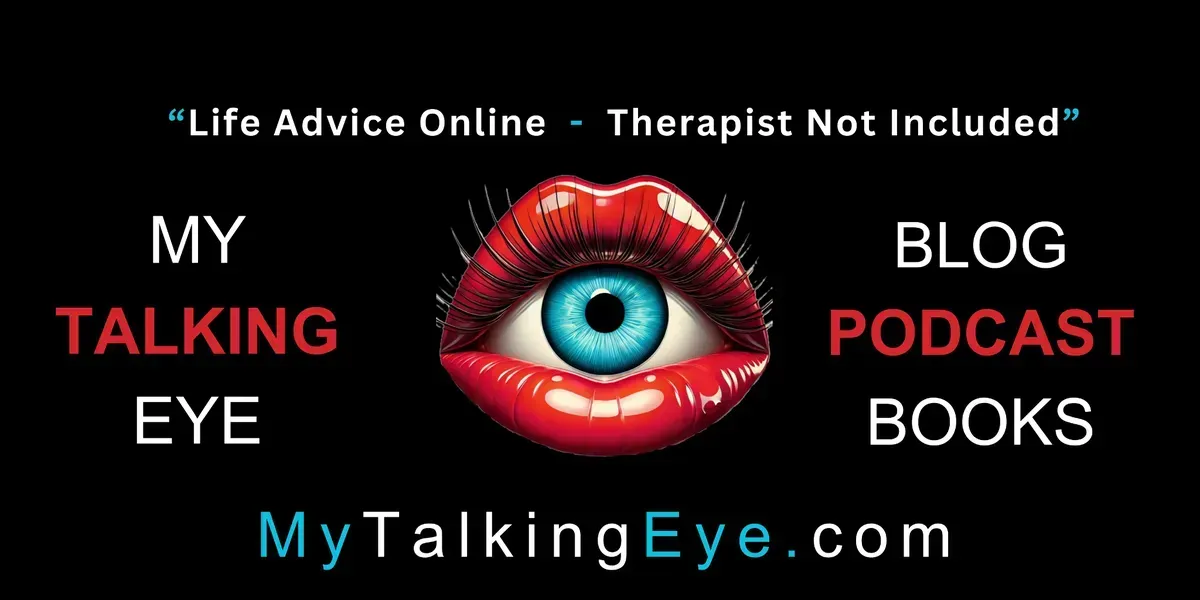

Transformation of Grief
Transformation of GriefOver Time
Fourth entry in the "Depths of Grief" blog series
They say that time heals all wounds. I've come to believe this isn't quite right. Time doesn't heal grief—it transforms it. The raw, bleeding wound becomes a scar. The scar remains forever, but it changes in texture, in sensitivity, in how it affects your daily movements.
As the months turn into years, grief evolves in ways I never expected when I was in those first desperate days of loss. This evolution isn't linear or predictable, but looking back, I can trace how my relationship with grief has changed—not ended, but changed.
Beyond the First Year: When "Just Getting Through" Isn't Enough Anymore
The first year after loss has a terrible momentum of its own. There's a grim checklist of firsts to endure:
The first birthday without them
The first holiday season
The first anniversary of their death
Each milestone arrives with its own unique pain, but there's also a strange comfort in having such clear markers of your grief journey. The world even acknowledges these firsts, offering extra support or understanding.
But what happens when you've checked all those boxes? When you've survived all the firsts, and now you're facing the seconds, the thirds, the rest of your life?
This is when grief shifts from an acute crisis to a chronic condition. The immediate emergency has passed, but you're left with the realization that this absence is permanent. That the rest of your life will unfold without this person in it.
When Memories Begin to Fade
One of the cruelest aspects of long-term grief is the way memories begin to soften around the edges. Details that were once crystal clear become harder to recall:
The exact timbre of their laugh
The specific way they moved their hands when they talked
How their voice sounded saying your name
This natural fading feels like a secondary loss, a betrayal of your person. I found myself desperately clinging to memories, trying to keep them vivid and present, as if remembering perfectly was the only way to honor them properly.
I didn't understand then that it's not possible to remember everything. That the human mind isn't designed to maintain that level of detail indefinitely. That forgetting some things doesn't mean forgetting the person or what they meant to you.
The Grief Ambushes Become Less Frequent but More Intense
In earlier grief, the pain is constant but often expected. As time passes, the everyday ache tends to recede, but the surprise attacks of grief can become more disorienting precisely because they're less frequent.
A song on the radio, a stranger with a similar mannerism, finding an old note in a book—these can still knock the wind out of you years later. The grief feels just as intense as it did in those first days, but now it's surrounded by longer periods of relative calm, making the contrast even more jarring.
The World's Timeline vs. Your Timeline
At some point—for many, around the two-year mark—the world decides you should be "over it." Whatever allowances were made for your grief have long expired. The grace period has ended.
But grief doesn't conform to external schedules. Its timeline is uniquely yours, shaped by countless factors:
The nature of your relationship
The circumstances of the death
Your personal history and coping mechanisms
The support systems available to you
Whether you've experienced other significant losses
Your grief will take as long as it takes. Understanding this can free you from the pressure to perform recovery on someone else's timetable.
Grief Becomes Integrated, Not Resolved
One of the most profound shifts in long-term grief is the move from grief as an overwhelming external force to grief as an integrated part of who you are.
In the beginning, grief feels like it's happening to you—an assault from outside yourself. Over time, it becomes part of your internal landscape, woven into your identity and worldview.
This integration doesn't mean the grief is gone. It means you've grown around it. The loss becomes one of the many threads in the tapestry of your life—always there, always part of the pattern, but no longer the only color you can see.
Finding Meaning in Loss: The Double-Edged Sword
As time passes, many grievers feel a pull toward finding meaning in their loss. This might take various forms:
Starting a foundation or charity
Becoming an advocate for a related cause
Creating art or writing inspired by your loved one
Developing a spiritual understanding that provides comfort
This meaning-making can be healing, providing a sense of purpose and connection. But it can also become a pressure—as if your loved one's death needs to be "worthwhile" in some cosmic accounting.
The truth is, you don't owe the world meaning. Some losses simply hurt. Finding purpose can be healing, but it's not an obligation.
The Relationship Continues to Evolve
Perhaps the most surprising aspect of long-term grief is that your relationship with the deceased continues to change over time. They remain a part of your life, but how you relate to them and their memory shifts:
You might find yourself having different internal conversations with them as you face new life challenges
Your understanding of who they were becomes more nuanced, more human
You incorporate their values or perspectives into your life in new ways
You develop rituals of remembrance that evolve over time
This ongoing relationship is one of the gifts of long-term grief—the recognition that love doesn't end with death.
When New Connections Form: Making Room Without Replacing
For many, a significant marker on the grief journey is forming new deep connections—whether romantic partners, friends, or chosen family. These new relationships don't replace what was lost, but they do change the grief landscape.
There's often guilt associated with these new bonds, a fear that moving forward means leaving your loved one behind. But the heart has an infinite capacity for love; new connections don't diminish the importance of what came before.
Instead, these relationships often provide a context in which your grief can be held alongside your capacity for joy and connection—a living example of that "both/and" reality we discussed in the previous post.
The Freedom in Long-Term Grief
There's a paradoxical freedom that can emerge in long-term grief. When you've survived the worst pain imaginable and found a way to continue living, other challenges often take on a different perspective.
Many grievers report a kind of fearlessness that comes from having already faced the unthinkable. A clarity about what matters and what doesn't. A deeper appreciation for the fragility and preciousness of life.
This isn't to say that grief is a gift—it's not. But the person you become through grieving may have strengths and insights that weren't accessible to you before.
The Grief That Outlasts a Lifetime
There's a beautiful concept in grief literature called "continuing bonds"—the understanding that grief isn't about severing connections with the deceased but about transforming them.
The goal isn't to "get over" someone but to find a way to carry them with you as you move forward in life. This perspective acknowledges that some bonds are too deep, too fundamental to who we are, to ever truly end.
In this view, grief becomes not a burden to eventually put down but a connection that changes form as you change.
Where You Might Be Now
If you're reading this in the midst of long-term grief, you might recognize yourself in some of these descriptions. Or your experience might be entirely different—grief is nothing if not personal.
Wherever you find yourself on this journey, know that there is no finish line, no point at which you'll be "completely healed." There is only the continued integration of your loss into your ongoing life, the weaving of absence into presence.
The question isn't whether you're "doing grief right" or whether you're "over it yet." The question is whether you're finding ways to honor both your loss and your continuing life—to carry your loved one with you without being paralyzed by their absence.
Time doesn't heal all wounds. But it does transform them in ways that make the burden more bearable. Not because the love or the loss diminishes, but because you grow strong enough to carry it.
In the final entry of our "Depths of Grief" blog series, I'll explore how grief fundamentally changes our perspective on life, death, and what matters most—and how these changes, painful as they are, can ultimately lead to a deeper, more authentic way of being in the world.
For those navigating long-term grief, I recommend "The AfterGrief" by Hope Edelman, which beautifully explores how loss continues to affect us throughout our lives.

Transformation of Grief
Transformation of GriefOver Time
Fourth entry in the "Depths of Grief" blog series
They say that time heals all wounds. I've come to believe this isn't quite right. Time doesn't heal grief—it transforms it. The raw, bleeding wound becomes a scar. The scar remains forever, but it changes in texture, in sensitivity, in how it affects your daily movements.
As the months turn into years, grief evolves in ways I never expected when I was in those first desperate days of loss. This evolution isn't linear or predictable, but looking back, I can trace how my relationship with grief has changed—not ended, but changed.
Beyond the First Year: When "Just Getting Through" Isn't Enough Anymore
The first year after loss has a terrible momentum of its own. There's a grim checklist of firsts to endure:
The first birthday without them
The first holiday season
The first anniversary of their death
Each milestone arrives with its own unique pain, but there's also a strange comfort in having such clear markers of your grief journey. The world even acknowledges these firsts, offering extra support or understanding.
But what happens when you've checked all those boxes? When you've survived all the firsts, and now you're facing the seconds, the thirds, the rest of your life?
This is when grief shifts from an acute crisis to a chronic condition. The immediate emergency has passed, but you're left with the realization that this absence is permanent. That the rest of your life will unfold without this person in it.
When Memories Begin to Fade
One of the cruelest aspects of long-term grief is the way memories begin to soften around the edges. Details that were once crystal clear become harder to recall:
The exact timbre of their laugh
The specific way they moved their hands when they talked
How their voice sounded saying your name
This natural fading feels like a secondary loss, a betrayal of your person. I found myself desperately clinging to memories, trying to keep them vivid and present, as if remembering perfectly was the only way to honor them properly.
I didn't understand then that it's not possible to remember everything. That the human mind isn't designed to maintain that level of detail indefinitely. That forgetting some things doesn't mean forgetting the person or what they meant to you.
The Grief Ambushes Become Less Frequent but More Intense
In earlier grief, the pain is constant but often expected. As time passes, the everyday ache tends to recede, but the surprise attacks of grief can become more disorienting precisely because they're less frequent.
A song on the radio, a stranger with a similar mannerism, finding an old note in a book—these can still knock the wind out of you years later. The grief feels just as intense as it did in those first days, but now it's surrounded by longer periods of relative calm, making the contrast even more jarring.
The World's Timeline vs. Your Timeline
At some point—for many, around the two-year mark—the world decides you should be "over it." Whatever allowances were made for your grief have long expired. The grace period has ended.
But grief doesn't conform to external schedules. Its timeline is uniquely yours, shaped by countless factors:
The nature of your relationship
The circumstances of the death
Your personal history and coping mechanisms
The support systems available to you
Whether you've experienced other significant losses
Your grief will take as long as it takes. Understanding this can free you from the pressure to perform recovery on someone else's timetable.
Grief Becomes Integrated, Not Resolved
One of the most profound shifts in long-term grief is the move from grief as an overwhelming external force to grief as an integrated part of who you are.
In the beginning, grief feels like it's happening to you—an assault from outside yourself. Over time, it becomes part of your internal landscape, woven into your identity and worldview.
This integration doesn't mean the grief is gone. It means you've grown around it. The loss becomes one of the many threads in the tapestry of your life—always there, always part of the pattern, but no longer the only color you can see.
Finding Meaning in Loss: The Double-Edged Sword
As time passes, many grievers feel a pull toward finding meaning in their loss. This might take various forms:
Starting a foundation or charity
Becoming an advocate for a related cause
Creating art or writing inspired by your loved one
Developing a spiritual understanding that provides comfort
This meaning-making can be healing, providing a sense of purpose and connection. But it can also become a pressure—as if your loved one's death needs to be "worthwhile" in some cosmic accounting.
The truth is, you don't owe the world meaning. Some losses simply hurt. Finding purpose can be healing, but it's not an obligation.
The Relationship Continues to Evolve
Perhaps the most surprising aspect of long-term grief is that your relationship with the deceased continues to change over time. They remain a part of your life, but how you relate to them and their memory shifts:
You might find yourself having different internal conversations with them as you face new life challenges
Your understanding of who they were becomes more nuanced, more human
You incorporate their values or perspectives into your life in new ways
You develop rituals of remembrance that evolve over time
This ongoing relationship is one of the gifts of long-term grief—the recognition that love doesn't end with death.
When New Connections Form: Making Room Without Replacing
For many, a significant marker on the grief journey is forming new deep connections—whether romantic partners, friends, or chosen family. These new relationships don't replace what was lost, but they do change the grief landscape.
There's often guilt associated with these new bonds, a fear that moving forward means leaving your loved one behind. But the heart has an infinite capacity for love; new connections don't diminish the importance of what came before.
Instead, these relationships often provide a context in which your grief can be held alongside your capacity for joy and connection—a living example of that "both/and" reality we discussed in the previous post.
The Freedom in Long-Term Grief
There's a paradoxical freedom that can emerge in long-term grief. When you've survived the worst pain imaginable and found a way to continue living, other challenges often take on a different perspective.
Many grievers report a kind of fearlessness that comes from having already faced the unthinkable. A clarity about what matters and what doesn't. A deeper appreciation for the fragility and preciousness of life.
This isn't to say that grief is a gift—it's not. But the person you become through grieving may have strengths and insights that weren't accessible to you before.
The Grief That Outlasts a Lifetime
There's a beautiful concept in grief literature called "continuing bonds"—the understanding that grief isn't about severing connections with the deceased but about transforming them.
The goal isn't to "get over" someone but to find a way to carry them with you as you move forward in life. This perspective acknowledges that some bonds are too deep, too fundamental to who we are, to ever truly end.
In this view, grief becomes not a burden to eventually put down but a connection that changes form as you change.
Where You Might Be Now
If you're reading this in the midst of long-term grief, you might recognize yourself in some of these descriptions. Or your experience might be entirely different—grief is nothing if not personal.
Wherever you find yourself on this journey, know that there is no finish line, no point at which you'll be "completely healed." There is only the continued integration of your loss into your ongoing life, the weaving of absence into presence.
The question isn't whether you're "doing grief right" or whether you're "over it yet." The question is whether you're finding ways to honor both your loss and your continuing life—to carry your loved one with you without being paralyzed by their absence.
Time doesn't heal all wounds. But it does transform them in ways that make the burden more bearable. Not because the love or the loss diminishes, but because you grow strong enough to carry it.
In the final entry of our "Depths of Grief" blog series, I'll explore how grief fundamentally changes our perspective on life, death, and what matters most—and how these changes, painful as they are, can ultimately lead to a deeper, more authentic way of being in the world.
For those navigating long-term grief, I recommend "The AfterGrief" by Hope Edelman, which beautifully explores how loss continues to affect us throughout our lives.
